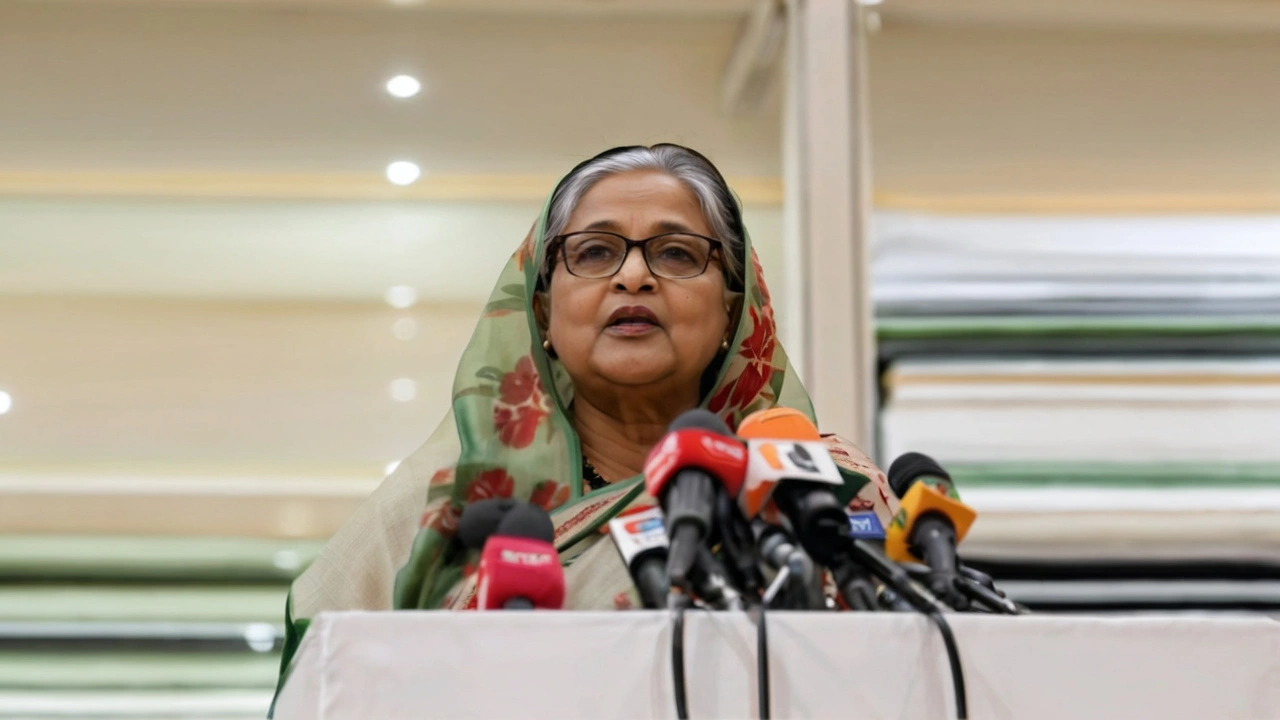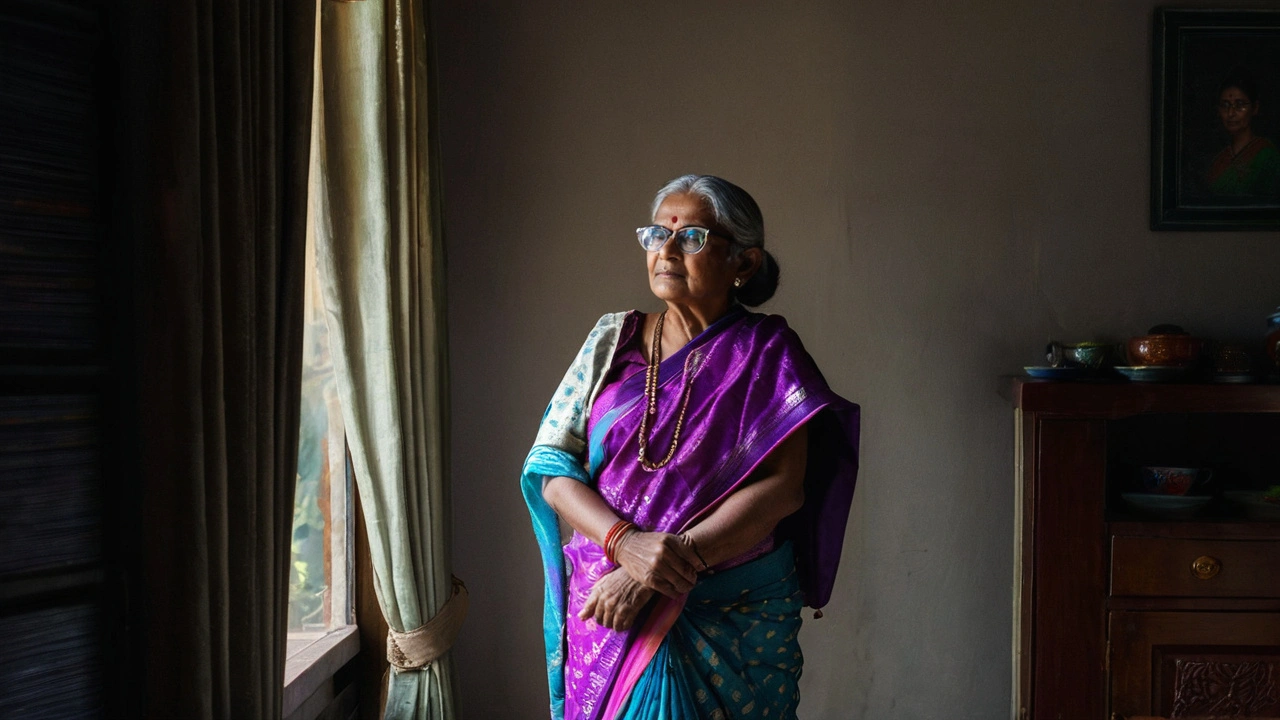 Aug, 7 2024
Aug, 7 2024
Bangladesh Prime Minister Sheikh Hasina Resigns Amid Nationwide Protests
In a stunning turn of events on August 5, 2024, Bangladesh Prime Minister Sheikh Hasina announced her resignation amid a wave of student-led protests. This has significantly altered the political landscape of Bangladesh. The protests, which have been ongoing since last month, escalated quickly as demonstrators clashed with security forces, leading to widespread disruptions in major cities. A tragic toll of at least 90 deaths has been reported, painting a grim picture of the situation.
Prime Minister Hasina's resignation is seen as a direct response to the mounting pressure from the public, who have been demanding substantial political reforms and an end to her long tenure. The outcry has put Bangladesh in the international spotlight, with the United States Department of State acknowledging the resignation and closely monitoring the unfolding events.
The Protest Movement: Roots and Impact
The mass protests began as a response to perceived government inadequacies and corruption. Spearheaded by students, the movement quickly garnered support from various segments of society, including professionals and civil rights activists. Demonstrators have been vocal about the urgent need for transparency, better governance, and political change.
Major cities across Bangladesh have witnessed significant unrest, with schools, businesses, and public transportation systems being severely affected. Security forces have been deployed extensively, often resulting in violent confrontations. The death toll of at least 90 is a stark reminder of the high stakes involved in this conflict.
International Reactions and Media Coverage
The international community has been closely following the situation in Bangladesh. The United States Department of State has expressed concern over the volatility and emphasized the need for a peaceful resolution. Media outlets worldwide have been covering the protests extensively, highlighting not only the immediate crisis but also the underlying issues that have fueled the people’s discontent.
Numerous human rights organizations have condemned the government's response to the protests, citing the excessive use of force by security personnel. There are calls for accountability and independent investigations into the deaths and reported cases of police brutality.
Historical Context and Background
Sheikh Hasina, the leader of the Awami League, has been a commanding figure in Bangladeshi politics. Her leadership spans multiple terms, with significant influence over the country's direction. However, her tenure has been marked by allegations of authoritarianism, human rights abuses, and failure to address key socio-economic issues.
The student-led protest movement represents a culmination of long-standing frustrations among the populace. The younger generation, in particular, has been vocal about the lack of opportunities, transparency, and the need for democratic reforms. These demands reflect broader concerns within Bangladeshi society about the future path of their nation.
The Resignation: Immediate Aftermath and Speculations
Following her resignation, Prime Minister Hasina left the country, leaving a power vacuum. The immediate aftermath was marked by both relief and uncertainty among the protestors. While some celebrated the success of their movement, the resignation also raised questions about the next steps in this politically charged environment.
Analysts are speculating on possible scenarios, including the formation of a transitional government or early elections. There is also debate about the potential leaders who might emerge to guide Bangladesh through this tumultuous period. The road ahead is fraught with challenges, but it also presents an opportunity for meaningful change.

The Future of Bangladesh: Navigating Uncertainty
The political direction of Bangladesh remains uncertain as the dust settles from these events. The nation now stands at a crossroads, with an opportunity to address key issues such as governance, transparency, and human rights. The new leadership, whether transitional or elected, will need to navigate these challenges carefully to restore stability and confidence among the people.
For the citizens of Bangladesh, this is a defining moment in their history. The resignation of Prime Minister Hasina is a powerful reminder of the impact of collective action and the importance of democratic principles. As the country moves forward, the voices of the protesters will continue to be a significant force in shaping the nation's future.
This critical period in Bangladesh's history will be watched closely by the international community. The path taken in the coming months will have far-reaching implications for the region and beyond, potentially setting a precedent for other nations facing similar challenges.

christine mae cotejo
August 7, 2024 AT 18:07Watching the sudden resignation of Sheikh Hasina feels like witnessing a seismic shift that has been brewing beneath the surface of Bangladeshi politics for years, a crescendo of frustration finally exploding into a roar that could not be silenced any longer. The student-led protests, which began as localized campus demonstrations, rapidly morphed into a nationwide outcry, echoing through the bustling streets of Dhaka, Chittagong, and beyond, each chant a testament to the yearning for transparency and justice. As the protestors clashed with security forces, the tragic loss of at least ninety lives painted a grim backdrop, reminding the world that the price of change can be harrowing. Yet, amid the sorrow, there is a palpable sense of empowerment, an undeniable realization that collective action can topple even the most entrenched leaders. The resignation is not merely a personal decision; it is a symbolic capitulation to the will of the people, a stark acknowledgment that the old guard can no longer ignore the pulse of the youth.
International observers, from the United States Department of State to various human‑rights NGOs, have taken note, signaling that the eyes of the global community are fixed on Bangladesh's next steps. This spotlight brings both opportunity and pressure, urging the interim authorities to address the deep‑seated grievances that ignited the movement. The ensuing power vacuum could usher in a transitional government or perhaps spark early elections, each scenario carrying its own set of challenges and hopes. What remains clear is that the era of unquestioned authority has been irrevocably altered, and the new leadership will need to navigate a landscape fraught with demand for reform, accountability, and genuine democratic participation.
For the ordinary citizens who have endured years of economic strain, corruption, and limited political freedoms, this moment feels like the first breath of fresh air after a prolonged suffocation. The student activists, once dismissed as idealistic, now stand as the vanguard of a broader societal transformation, their voices resonating across social media, university halls, and street corners alike. The road ahead is undeniably rocky, riddled with uncertainties, but the very fact that such a dramatic resignation occurred without a single ballot cast demonstrates the power of sustained, non‑violent protest. In the months to come, the nation will have to grapple with the practicalities of governance-drafting new policies, ensuring the safety of its people, and rebuilding trust between the state and its citizens.
Ultimately, this defining moment could serve as a blueprint for other nations wrestling with similar struggles, showcasing that even the most entrenched political figures can be held accountable when the populace unites with unwavering resolve. The story of Bangladesh in 2024 will be remembered not just for the resignation itself, but for the indomitable spirit that made it possible.
Douglas Gnesda
August 8, 2024 AT 22:46Building on that dramatic overview, it's worth noting that the trajectory of the protests aligns with classic diffusion theory, where a tipping point is reached once a critical mass of activists leverages network effects across digital platforms. The jargon-laden discourse among policy analysts now centers on "institutional resilience" and "transitional governance frameworks," underscoring the urgency for a calibrated response that balances security imperatives with civil liberties. Moreover, the involvement of diaspora communities amplifies the diplomatic stakes, as lobbying efforts in Washington and Brussels intensify, potentially shaping the contours of foreign aid and trade negotiations. In short, the resignation acts as a catalyst that could recalibrate both domestic policy agendas and Bangladesh's position in the broader South Asian geopolitical matrix.
Abhijit Pimpale
August 10, 2024 AT 05:20The resignation was inevitable given the sustained pressure from organized student unions and civil society groups.
Eric DE FONDAUMIERE
August 11, 2024 AT 11:53Yo, this is huge! Hasina stepping down after the protests is like the ultimate plot twist in Bangla politics, and I cant believe how fast everything changed. The streets were on fire, literally, and now we might finally see some real reforms. Lets hope the next leaders actually listen to the people!
Pauline Herrin
August 11, 2024 AT 16:03While the enthusiasm is understandable, it is imperative to approach this juncture with measured analysis rather than unchecked optimism. The abrupt departure of a long‑standing prime minister necessitates a thorough assessment of institutional continuity, particularly concerning fiscal policy, foreign relations, and security apparatuses. Moreover, any transitional framework must be anchored in constitutional legitimacy to avoid exacerbating the existing volatility.
pradeep kumar
August 13, 2024 AT 00:00Honestly, the whole scene feels like a chaotic reality TV episode, and the media hype is only feeding the frenzy.
love monster
August 14, 2024 AT 03:46It's encouraging to see the younger generation stepping up and making their voices heard. This momentum could pave the way for more inclusive governance if the interim leaders stay open to dialogue and concrete reforms.
Christian Barthelt
August 15, 2024 AT 07:33One could argue that the protests are less about genuine democratic aspirations and more about opportunistic factions exploiting unrest for political gain.